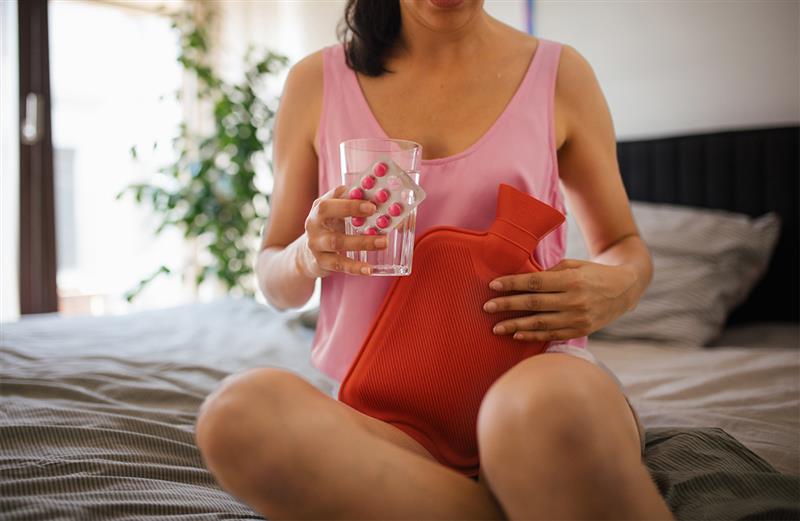
Vaginal infections are something most women encounter at least once in their lifetime. Whether it’s the dreaded itch of thrush, the fishy odour of bacterial vaginosis (BV), or a pesky yeast infection, these conditions can disrupt your daily life and confidence. For women living in London and across the UK, understanding what causes these infections, how to spot them early, and how to treat them safely is crucial. Not only are they common, but untreated infections can lead to more serious health issues. Let’s dive into everything you need to know about preventing and treating vaginal infections while keeping things simple, relatable, and medically accurate.
What Causes Vaginal Infections?
To tackle vaginal infections effectively, it helps to understand their root causes. Thrush and yeast infections are often triggered by an overgrowth of Candida, a type of yeast naturally present in the vagina. This imbalance can be caused by factors like hormonal changes, tight clothing that traps moisture, or excessive use of scented hygiene products.
Bacterial vaginosis (BV), on the other hand, occurs when "bad" bacteria outnumber the "good" ones in the vagina. Antibiotics, which are commonly prescribed in the UK for various illnesses, can wipe out beneficial bacteria, leaving the door open for BV. Stress, poor diet, and even menopause can also disrupt the delicate balance of vaginal flora, making you more prone to infections.
For some women, vaginal infections become recurring or chronic, which may require deeper investigation into underlying health issues such as diabetes or immune system disorders.
How to Recognise the Symptoms
Spotting the signs of a vaginal infection early can save you from unnecessary discomfort. Common symptoms include itching, burning sensations, unusual discharge, and unpleasant odours. However, not all infections look the same.
Thrush typically causes thick, white discharge resembling cottage cheese, along with intense itching. BV, meanwhile, is known for thin, greyish discharge and a fishy smell, especially after sex. If you’re experiencing any of these symptoms, don’t jump to conclusions – self-diagnosis can lead to incorrect treatment. Instead, visit a GP or sexual health clinic in the UK for proper testing. Many clinics offer free services through the NHS, ensuring you get accurate results without breaking the bank.
How to Treat Vaginal Infections in the UK
The good news is that most vaginal infections are treatable. For mild cases of thrush, over-the-counter options like Canesten creams or oral fluconazole tablets are readily available at pharmacies across the UK. These treatments work quickly to relieve symptoms, but always follow the instructions carefully.
If you suspect BV, a prescription antibiotic like metronidazole is usually required. It’s important to complete the full course, even if symptoms improve, to prevent recurrence. Pregnant women should consult their midwife or GP before using any medication, as certain treatments may not be safe during pregnancy.
In London, where time is precious, private clinics offer fast-track appointments and same-day testing for those who need quicker access to care. While NHS services are excellent, private options can provide added convenience and confidentiality.
Home Remedies and Natural Prevention Methods
While medical treatments are often necessary, there are gentle home remedies that can complement your recovery or help prevent future infections. For example, applying plain yoghurt directly to the affected area can soothe irritation caused by yeast infections due to its natural probiotic properties.
Speaking of probiotics, research conducted in the UK suggests that taking probiotic supplements or eating fermented foods like kefir and sauerkraut can support a healthy balance of vaginal bacteria. Just ensure you choose products specifically designed for vaginal health.
Proper washing techniques are equally important. Avoid harsh soaps and opt for pH-balanced alternatives sold in UK stores. Stick to warm water for cleaning intimate areas, and steer clear of scented tampons, pads, or panty liners. Wearing breathable cotton underwear instead of synthetic fabrics can also reduce the risk of irritation and infection.
Preventing Recurring Vaginal Infections
If you find yourself dealing with frequent infections, prevention becomes key. Start by adopting simple daily habits: wash with care, change out of wet gym clothes promptly, and avoid douching, which can upset your vaginal pH.
Safe sexual practices matter too. Always use condoms with new partners, and consider urinating before and after sex to flush out bacteria. Managing stress through mindfulness, exercise, or hobbies can also strengthen your immune system, reducing your susceptibility to infections.
For women approaching menopause or experiencing post-period imbalances, maintaining a balanced diet rich in fruits, vegetables, and whole grains can make a world of difference. Staying hydrated supports overall bodily functions, including vaginal health.
When to Seek Medical Help
Sometimes, despite your best efforts, infections persist or worsen. If over-the-counter treatments aren’t working, or if you notice severe pain, fever, or unusual bleeding, it’s time to see a doctor. Sexual health clinics in the UK are well-equipped to handle these concerns discreetly and efficiently.
During an appointment, expect a physical examination and possibly a swab test to identify the specific infection. Depending on the diagnosis, your healthcare provider will recommend appropriate treatment. In London, several private clinics offer same-day consultations and STI screenings, ensuring you receive timely care.
Learn & Prevent Effectively
Discover expert tips and remedies to prevent vaginal infections. Download our free guide now and keep your intimate health safe.
FAQs
How to stop itching down there immediately in the UK?
Apply a cold compress or use an OTC anti-itch cream designed for sensitive areas. Avoid scratching, as this can worsen irritation.
Can probiotics really prevent vaginal infections?
Yes! UK studies suggest that probiotics can help maintain a healthy balance of vaginal bacteria, reducing the risk of infections.
What’s the difference between thrush and BV?
Thrush is caused by yeast overgrowth and presents with thick, white discharge and itching. BV involves bacterial imbalance and is characterised by thin, grey discharge and a fishy odour.
Why do I keep getting vaginal infections after periods?
Hormonal fluctuations during menstruation can alter vaginal pH, making you more vulnerable to infections. Practise good hygiene and consider probiotic supplements.
Is thrush contagious through sexual contact?
While thrush isn’t classified as an STI, it can sometimes spread through sexual activity. Using protection reduces this risk.
Conclusion
Vaginal infections might feel embarrassing to talk about, but remember – they’re incredibly common and nothing to be ashamed of. By understanding their causes, recognising symptoms early, and seeking appropriate treatment, you can manage these conditions effectively. Incorporating preventive measures like probiotics, proper hygiene, and stress management into your routine can go a long way in keeping infections at bay.
If you’re based in London and need fast, confidential care, don’t hesitate to book an appointment with a private sexual health specialist. Early diagnosis and treatment are your best allies in maintaining optimal vaginal health. Take charge of your well-being today – you deserve it!







